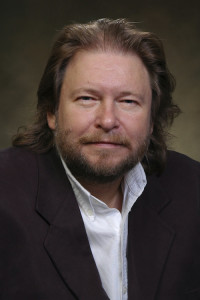American journalist and nonfiction writer Rick Bragg will be speaking at the Spring Literary Festival on April 7 at 4 p.m. in the UC Theater. He will be reading from a few of his memoirs and speaking about his time as a journalist.

American journalist and nonfiction writer Rick Bragg
Photo from Google Images
Bragg was born in the small city of Piedmont, Alabama, and grew up in the community of Possum Trot near Jacksonville. He worked at several newspapers before joining the New York Times in 1994. He covered stories ranging from murders and unrest in Haiti to the Oklahoma City bombing, the Jonesboro killings, the Susan Smith trial and more as a national correspondent based in Atlanta.
He then moved to Miami as bureau chief, where he won a Pulitzer Prize for his reporting of the international controversy surrounding a cuban boy, Elián González. He left the New York Times in May 2003 after being given a two-week suspension for writing a story that primarily used the research of a stringer, causing Bragg to resign in protest.
Bragg has authored six books: All Over But the Shoutin, Ava’s Man, The Prince of Frogtown, I Am a Soldier Too: The Jessica Lynch Story, the authorized biography of American POW Jessica Lynch, The Most They Ever Had, and Jerry Lee Lewis: His Own Story, a biography of the rock and roll legend.
Bragg has taught writing in colleges and in newspaper newsrooms and now works as a writing professor at the University of Alabama’s journalism program in its College of Communications and Information Sciences.
Bragg won the 1996 Pulitzer Prize for Feature Writing. He has received more than 50 writing awards in 20 years, including the American Society of Newspaper Editors’ Distinguished Writing Award twice. In 1992, he was awarded a Nieman Fellowship at Harvard University and many more.
In an interview with Sue Strachan from New Orleans Magazine, it was stated that Bragg never gives a straight yes or no answer; his answers are never simple or straight to the point. Bragg was asked why he chose to write memoirs about his own life, to which he answered,
“If you have a story that you need to tell and it’s interesting, you should. Because of the history you had with your father, was The Prince of Frogtown harder to write? Yes, this was harder to write than the other two. I didn’t have a place to go in my head before, and now I do.”



